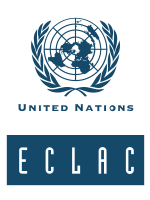
- This project has passed.
ECLAC School of Latin American Development Studies (ELADES)
YSI @ ELADES
Start time:
July 5, 2022 - August 29, 2022
EDT
Location:
Economic Commission for Latin America and the Caribbean (ECLAC), Santiago Province, Santiago Metropolitan Region
Type:
Workshop

Local Partners
Description
The Latin America Working Group of the Young Scholars Initiative (YSI) is supporting the Program for Advanced Studies on Latin American Economies (ELADES, in Spanish) and will organize activities during the School, which include: (1) An Alumni Seminar, (2) Feedback activities on Students' final work, (3) a post-ELADES workshop in which students from the current program will be able to present papers and engage with researchers, and other young scholars. Our support to ELADES include workshops with senior lecturers, young scholar presentation and the opportunity to interact with ECLAC researchers and summer school participants. Please note that the application process for ELADES is accessible via ECLAC's website. Your application to the YSI Alumni workshop is not connected to the application process of the ECLAC summer school.
The YSI Alumni Workshop Call for Papers
12/07 – 13/07
Santiago, Chile
This YSI Alumni Workshop’s Call for Papers invites contributions on any subject related to the Economy and Development of Latin America and the Caribbean. Please submit your extended abstract (up to 800 words).
APPLY HERE: https://fs8.formsite.com/CNZLjX/4259xxfvnd/index.html
NEW Deadline: 10/06/22
In particular we are interested in submissions dealing with themes and research discussed in the ECLAC´s summer school on Latin American economies. Students can present either in person (with limited funding) or online. Possible topics may include:
- Debt and Development: The role of FDI in the region, the changing nature of external creditors in the region
- Inclusive Finance: The role of state development banks (e.g. BNDES in Brazil) and micro-credit institutions or traditional banks financing (agricultural) value chains in the region.
- Inequality: Household-income survey analyses of personal income distribution as well as assessment of the shifting factor-income shares due to changing macroeconomic regimes in the region.
- Macroeconomic regimes: Determinants of the various exchange rate regimes at work in the region, and the connection with inflation, the business cycle and growth potential.
- Technological gaps: Innovation, imitation and adaptive technological strategies, national systems of innovation, and balance of payments constraints in the region.
- Productive specialization: reprimarization, industrialization around natural resource-based complexes or import substitution industrialization (ISI).
- Schools of Latin American economic thought: structuralism, dependency theory, the role of ECLAC.
Preference will be given for ELADES alumni. Papers will be accepted in English and Spanish.
The ELADES is an opportunity to discuss economic and social development issues in-depth while respecting the pluralism inherent to development studies. During the Program, theoretical and empirical issues are addressed, emphasizing the experience of the Latin America and the Caribbean counties. The Program is aimed at young researchers from around the world. Classes are taught by the School team and ECLAC staff, and also by prominent external teachers invited each year. The course is taught in English and Spanish.
In ECLAC’s analytical tradition, production structure, technological progress and trade specialization are the main variables that explain long-run economic and social development. ECLAC’s contributions are part of a tradition in economic theory that combines the Keynesian paradigm with the Schumpeterian and evolutionary traditions. The former pays special attention to income distribution and full employment policies, while the latter focuses on the dynamics of learning, technological innovation and diffusion and its impact on the production patterns. These traditions recognize that industrial and technological policies are crucial to foster developing countries’ convergence with the developed economies in terms of technological capabilities and per capita GDP. In the ECLAC Summer School the participants debate these topics in an open, plural and multidisciplinary framework. They study empirical and theoretical topics focusing recent Latin American economic history and its impacts on economic perspectives and policies.
